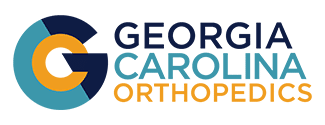Endoscopic Carpal Tunnel Release
Carpal tunnel syndrome is a common condition affecting the hand and forearm. Carpal tunnel can cause pain, numbness, and tingling in the hand and forearm. Early on, carpal tunnel can be treated with wrist splints, activity modification, and injections. However, carpal tunnel can get worse over time, and surgery may be necessary to prevent permanent nerve damage.
At Georgia Carolina Orthopedics, Dr. Richard Pope, Dr. R. Vaughan Massie, Dr. Mark Snoddy, Dr. Brian Abell, and Dr. David Doman are our experts in endoscopic carpal tunnel release. They are all board certified and fellowship trained surgeons. Combined, our surgeons have performed over 1,000 endoscopic carpal tunnel release procedures over the course of their careers.
Causes & Symptoms of Carpal Tunnel Syndrome
The carpal tunnel is a narrow tunnel in the wrist formed by the carpal bones and transverse carpal ligament. It is a fairly rigid structure, with very little capacity to stretch or expand. The median nerve, which supplies the index, middle, and ring fingers and the muscles at the base of the thumb, passes through the carpal tunnel. Flexor tendons also pass through the carpal tunnel and help with bending the thumb and fingers. The tendons are surrounded with a tissue called the synovium that lubricates the tendons.
The flexor tendons or the synovium can swell, narrowing the carpal tunnel and putting pressure on the median nerve. This is called carpal tunnel syndrome. Carpal tunnel syndrome can cause numbness, tingling, pain, and shock-like sensations in the thumb and index, middle, and ring fingers. Pain and tingling may travel up the forearm. Patients may experience hand weakness, which may make it difficult to perform certain tasks. Symptoms are typically mild at first and gradually worsen over time.
There are a number of factors that can increase the risk of developing carpal tunnel. Repetitive hand use and frequent, prolonged extension or flexion of the hand and wrist are common causes of carpal tunnel. Pregnancy and health conditions like diabetes, rheumatoid arthritis, and thyroid imbalance can also contribute to swelling. Heredity may also be a contributing factor.
Carpal Tunnel Release Procedure
Carpal tunnel syndrome is typically treated with nonsurgical methods like bracing, injections, and activity modification in the initial stages. However, if symptoms persist, carpal tunnel release surgery may be recommended.
To evaluate patients for carpal tunnel surgery, the surgeon conducts two tests. An electromyogram (EMG) measures electrical activity in the muscle and confirms whether nerve or muscle damage is present. The surgeon also determines a CTS-6 score for the patient to diagnose the severity of the carpal tunnel. A CTS-6 evaluation assesses six key carpal tunnel symptoms on a weighted 26-point scale to determine the probability of carpal tunnel syndrome. Patients with a CTS-6 score of 12 or higher may be considered for surgery.
The surgical procedure for carpal tunnel syndrome is called a carpal tunnel release. The goal of the procedure is to relieve pressure on the median nerve. The surgeon uses an endoscopic approach for this procedure. During an endoscopic carpal tunnel release, the surgeon inserts a small camera called an endoscope into a small incision to view the internal structures of the hand and wrist. He then uses a special knife to divide the transverse carpal ligament, which increases space in the carpal tunnel, alleviating pressure on the median nerve.
If carpal tunnel syndrome is present in both hands, the surgeon can perform an endoscopic carpal tunnel release on both hands at the same time, which decreases recovery time.
Recovering from Endoscopic Carpal Tunnel Release
Recovery from endoscopic carpal tunnel release is typically easier on the patient than traditional, open approaches because the incisions are much smaller. Patients may take pain medication for the first few days after surgery. Most pain typically subsides within the first week, though patients may experience some soreness in the palm for 6-8 weeks after surgery, particularly when doing activities that put pressure on the palm (such as using your hands to push up to standing from your seat).
Patients can begin using the hand for light everyday activities the day of surgery. Patients are advised to only use the hand for light activities within the first two weeks of surgery. Most patients can return to work within two weeks. Patients may be given exercises to do at home, but most will not need formal physical therapy.
Endoscopic Carpal Tunnel Release in Augusta, Aiken & Surrounding Communities
Dr. Richard Pope, Dr. R. Vaughan Massie, Dr. Mark Snoddy, Dr. Brian Abell, and Dr. David Doman specialize in endoscopic carpal tunnel release at Georgia Carolina Orthopedics. Combined, they have treated over 1,000 patients with this procedure. If you would like to schedule an appointment, please call our office at 706-863-9797 or 706-722-3401 (Augusta area), or 803-649-2250 (Aiken area). You may also request an appointment online.
